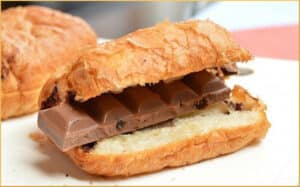
Not long ago, IFLScience.com published a list of “23 Facts You Learned About Healthy Eating As A Kid That Are No Longer True,” replete with plenty of source links for those who wish to know where the information came from. The top three are especially significant to the author, Hilary Brueck, so we too will start with those.
The first myth is that low-fat food products are inevitably better for the waistline than high-fat variants of the same food. Our bodies need fat for many purposes, and when we don’t get enough, we eat sugar and carbs, which are actively destructive. Whole milk is okay, too.
Childhood Obesity News has touched on this topic, which concerns one of the most far-reaching and harmful con games ever engineered by dishonest “authorities.” Another of the author’s top three myths is that urine should be clear with no yellow tinge, because if that’s going on, it means the person is over-hydrated.
Brueck also wants readers to know that “electrolytes and performance drinks don’t do anything special for your body,” information that might disappoint stockholders in the $12-billion-per-year energy beverage market. Here goes another cherished belief: that breakfast is the most important meal. The author says if you’re hungry eat; if not, don’t. However, it does seem to be true that for people who work out in the morning, empty-stomach activity burns as much as 20 percent more body fat.
It is hard to believe that anyone still thinks processed cereal is a great breakfast food, although apparently that belief is still common. Likewise, the idea that 100 percent real fruit juice is a good choice. Without the fiber that comes with whole fruit, the body doesn’t know what to do with the influx of sugar water. Here is a scary quotation:
Scientists recently looked at the health records of more than 13,400 US adults, and concluded that each additional 12-ounce serving of juice people drank per day was associated with a 24% higher risk of death.
This is a bit confusing, because in reality we all face a 100 percent risk of death, so let’s check the source. It goes back to a very recent Harvard study published in the Journal of the American Medical Association that compared fruit juices to sugar-sweetened beverages (SSBs), the more formal name for fizzy drinks or soda pop. It includes some very complicated findings regarding SSBs, natural juices, and all-cause mortality, and like most studies, a sentence that begins, “Clearly, more research is needed…” Also, people should be aware that diet soda is really no better that full-on soda, for one’s overall health.
“Snacking is healthy” is a myth, and so is “Fasting is bad for your health.” Intermittent fasting is the hot new concept, but at its most basic level, it simply means that people should let there be at least 12 consecutive hours out of 24 in which nothing is eaten. Say, from 7 PM to 7 AM. That doesn’t sound too shocking, does it?
Another myth is that most people do not consume enough protein. Actually, most Americans do, although they would be better off getting it from plants rather than meat. Brueck also breaks it to readers that carob is no healthier than chocolate; chocolate does not cause acne; most store-bought yogurt is crap; margarine kills; salt does not kill; coffee is okay; and egg consumption is not related to heart disease.
Your responses and feedback are welcome!
Source: “23 Facts You Learned About Healthy Eating As A Kid That Are No Longer True,” IFLScience.com, 06/21/19
Source: “Are Fruit Juices Just as Unhealthy as Sugar-Sweetened Beverages?,” JAMANetwork.com, 05/17/19
Photo on Visualhunt

 FAQs and Media Requests:
FAQs and Media Requests: 











